Two large palm trees planted four years ago in Dartmouth could soon be gone if they don’t show signs of life.

In 2018, the municipality planted nine palms around the community, with the goal to “bring a little bit of the tropics here,” according to Dartmouth Centre Councillor Sam Austin.
“We’ve had a long tradition of displaying plants from elsewhere in the world,” he said.
“Not everyone has the opportunity to travel and so there’s a long tradition of taking exotic, tropical plants and using them as fixtures and ornamentals in park spaces.”
Some smaller palm trees were planted in Dartmouth Common and the park next to the Alderney ferry terminal, but the towering windmill palms located at Sullivans Pond and Shubie Park were the stars of the show.
While windmill palms are among the world’s most cold-hardy, they apparently weren’t hardy enough to withstand several Nova Scotian winters.
Now, the once-green leaves are brown and brittle on the tree at Shubie Park, and nearly gone altogether from the tree in Sullivans Pond.
“There’s not much to see right now, right now it’s just a stick in the air,” Austin remarked.
HRM spokesperson Klara Needler said the trees “seem to have experienced a harsher winter than in the previous year.”

Get breaking National news
Despite having been insulated in boxes over the winter, they are still vulnerable to extreme cold temperatures, she said.
“The cold temperatures damaged the leaf tissue, causing the leaves to die,” she said.
She said staff removed the leaves on the palm at Sullivans Pond, but not on the palm tree at Shubie Park because they want to compare which approach would be best for producing new leaves.
Unfortunately, neither method appears to be working.
“Both trees seem to be responding the same way, with no new growth shown to date,” she said.
“If the two palms do not push out new leaves by the end of June, they will be deemed as dead as a result of the cold winter temperatures, and will likely be removed from the parks.”
Needler said there are also two pindo palms in planters that were placed in a municipal greenhouse over the winter, and are expected be planted at Ferry Terminal Park in Dartmouth next week.
“Both of those palm trees in planters are in good shape,” she added.
But the same couldn’t be said about the five other small palm trees the city received in 2018 – three needle palms and two dwarf palmettos – which “did not survive the first winter due to mildew and cold,” said Needler.
Even though the trees are “looking a little rough” right now, Austin said the palm tree experiment was still a success. The initial cost of the trees and maintenance has been less than $4,000, he said, and they created an interesting attraction for area parks.
“You don’t do anything fun unless you take a little bit of risk here and there,” he said. “It cost us very little, it generated a lot of attention, it brought a lot of joy.”
He still hopes the windmill palms find some strength to sprout in the next two weeks.
“It would be nice if they make it, but we have to wait and see,” he said. “Mother Nature’s in charge of this.”

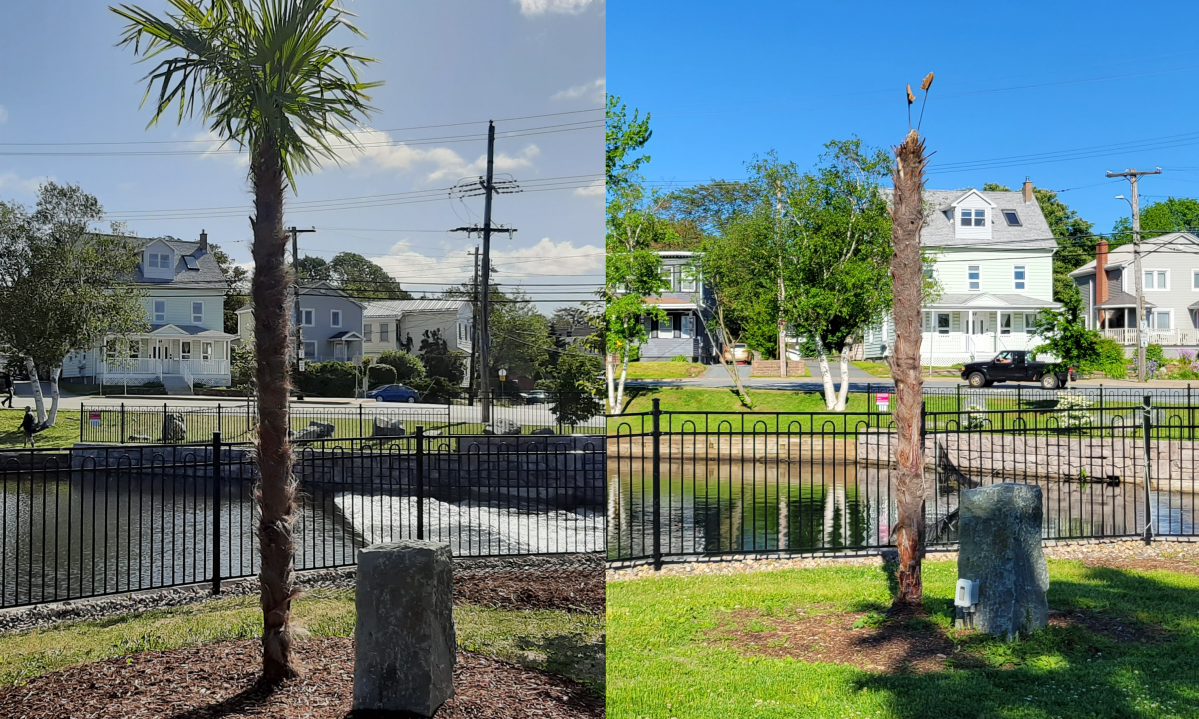
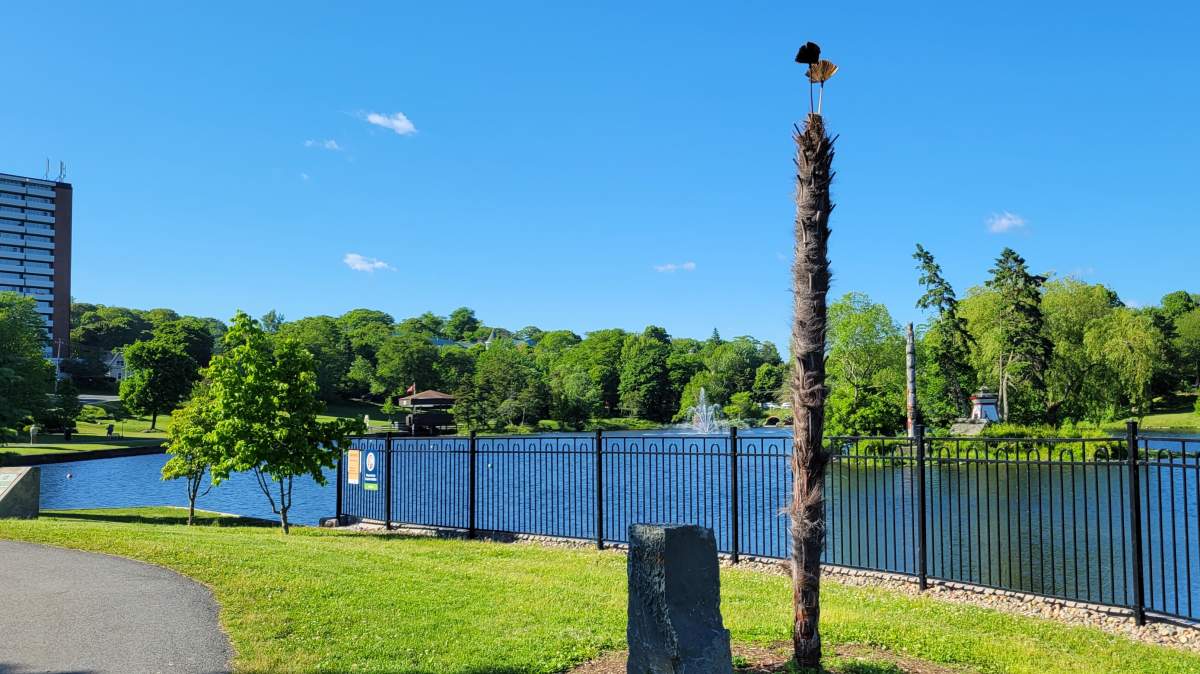
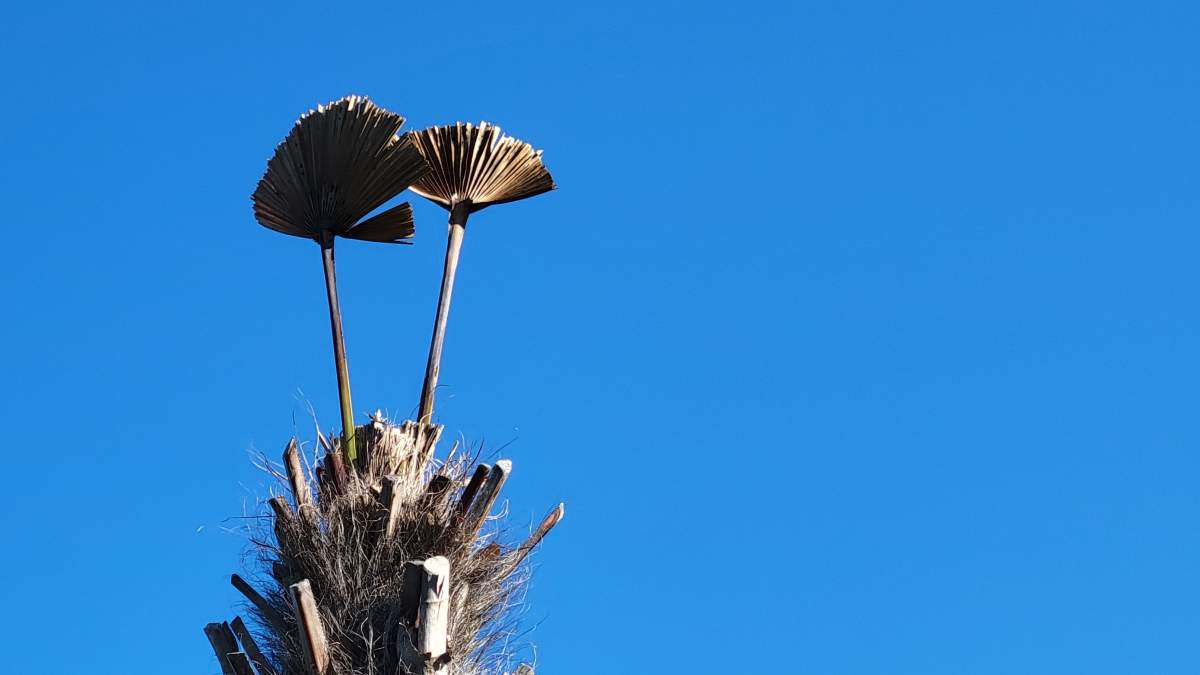
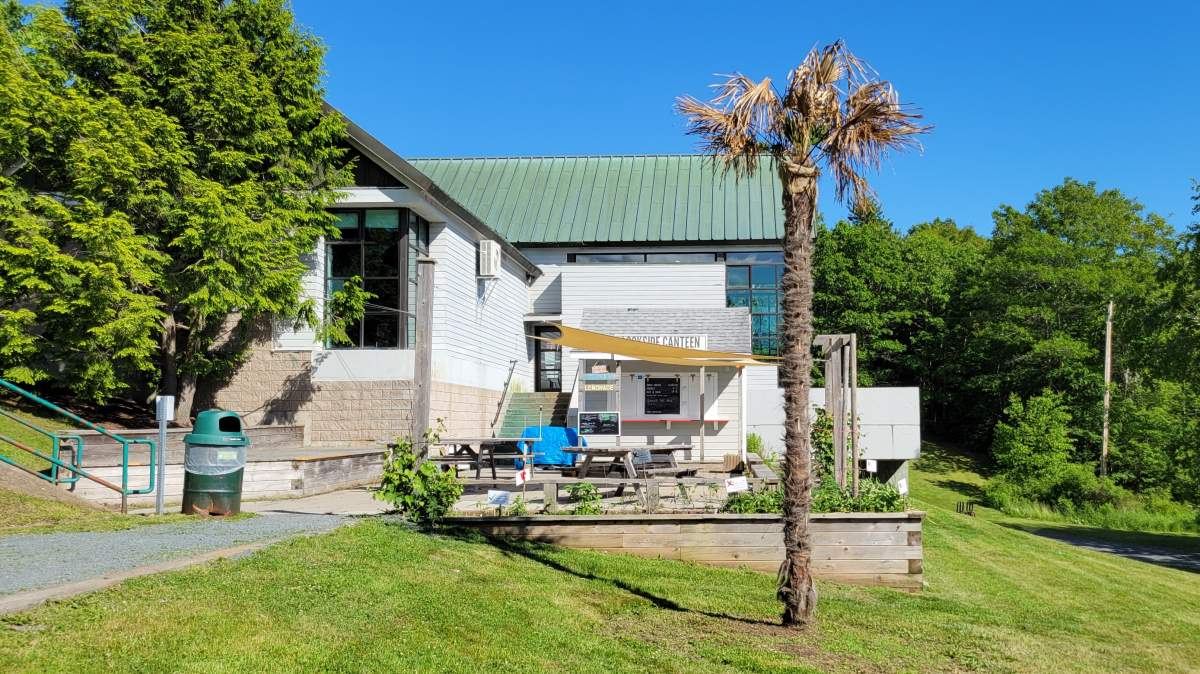


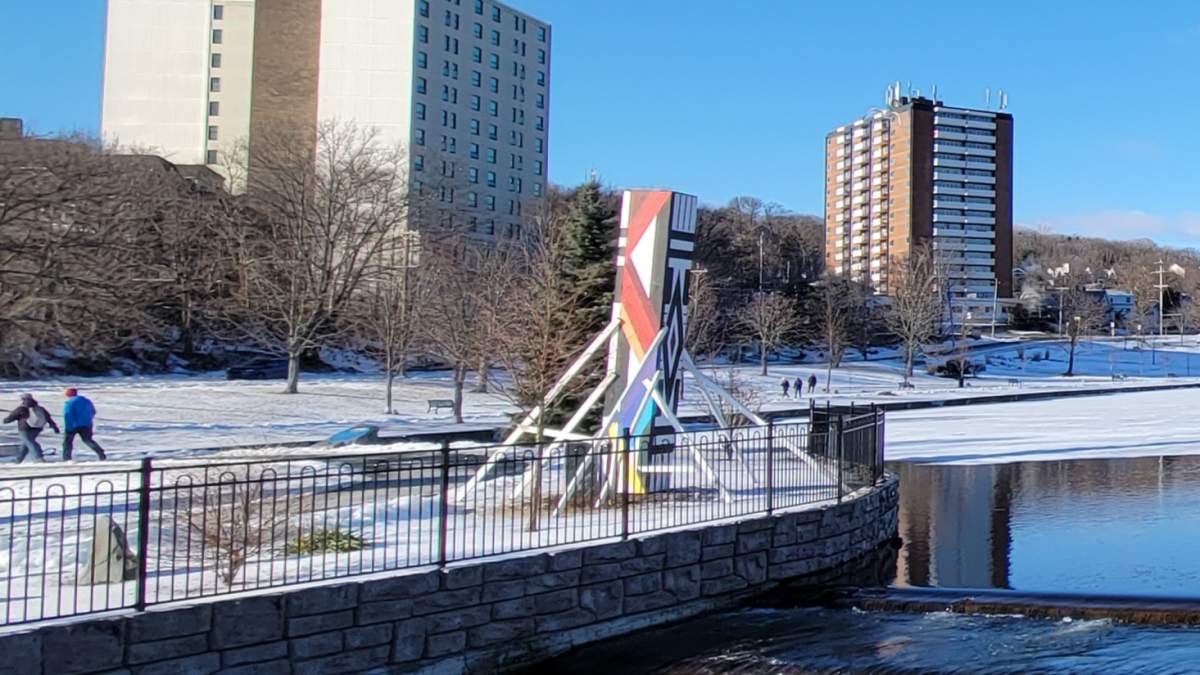




Comments